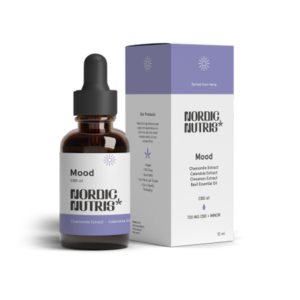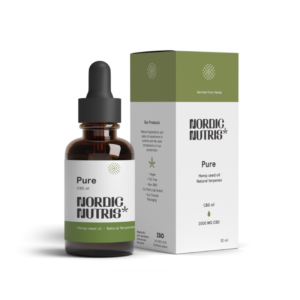CBD aliejus “Daily Boost”
CBD aliejus energijai 600mg CBD & minors, 10ml
Kanabidiolio (CBD) aliejus „Daily Boost“ – tai kosmetinis aliejus, pagamintas iš natūralių ingredientų, kurie palaiko gerą odos būklę, saugo ją ir suteikia gaivos pojūtį. CBD padeda kontroliuoti sebumo (aliejaus mišinys, kurį pagamina mūsų riebalų liaukos) gamybą, išvengti žalingo išorinių veiksnių poveikio odai, o kartu su ubikinonu (Kofermentu Q10) pasižymi antioksidaciniu poveikiu.
Be to, CBD, ubikinonas (Kofermentas Q10) ir islandinės kerpenos ekstraktas palaiko gerą odos būklę, o pipirmėtės aliejus suteikia odai malonų šviežumą. CBD aliejus energijai „Daily Boost“ skirtas atgaivinti odos priežiūrą, siekiant išlaikyti gerą odos būklę, apsaugoti ją nuo žalingo išorinių veiksnių poveikio ir suteikti šviežumo pojūtį.
CBD aliejus tinkamas veganams. Naudojama ekologiška pakuotė. Kosmetikos produktas.
Statement of Conformance
CBD aliejus “Daily Boost”
CBD aliejus energijai 600mg CBD & minors, 10ml
Kanabidiolio (CBD) aliejus „Daily Boost“ – tai kosmetinis aliejus, pagamintas iš natūralių ingredientų, kurie palaiko gerą odos būklę, saugo ją ir suteikia gaivos pojūtį. CBD padeda kontroliuoti sebumo (aliejaus mišinys, kurį pagamina mūsų riebalų liaukos) gamybą, išvengti žalingo išorinių veiksnių poveikio odai, o kartu su ubikinonu (Kofermentu Q10) pasižymi antioksidaciniu poveikiu.
Be to, CBD, ubikinonas (Kofermentas Q10) ir islandinės kerpenos ekstraktas palaiko gerą odos būklę, o pipirmėtės aliejus suteikia odai malonų šviežumą. CBD aliejus energijai „Daily Boost“ skirtas atgaivinti odos priežiūrą, siekiant išlaikyti gerą odos būklę, apsaugoti ją nuo žalingo išorinių veiksnių poveikio ir suteikti šviežumo pojūtį.
CBD aliejus tinkamas veganams. Naudojama ekologiška pakuotė. Kosmetikos produktas.
Saugūs apmokėjimo būdai.
Kanabidiolis (CBD)
Tai yra natūraliai išgaunamas kanapės augalo junginys, kuris padeda išvengti diskomforto sukeliamų pojūčių ir nuteikia ramiai savijautai.
Islandijos samanų ekstraktas
Tai – maistinėmis medžiagomis praturtintas augalinis ingredientas, kuris padidina CBD aliejaus stiprumą.
Kofermentas Q10
Šis antioksidantas apsaugo nuo laisvųjų radikalų poveikio ir pozityviai veikia organizmo ląstelių atsinaujinimą.
Pipirmėčių eterinis aliejus
Tai - unikalaus aromato natūralus junginys, kuris pasižymi raminamosiomis savybėmis ir gerina virškinimą.
 Nemokamas pristatymas visiems didesniems nei 60 Eur užsakymams
Nemokamas pristatymas visiems didesniems nei 60 Eur užsakymams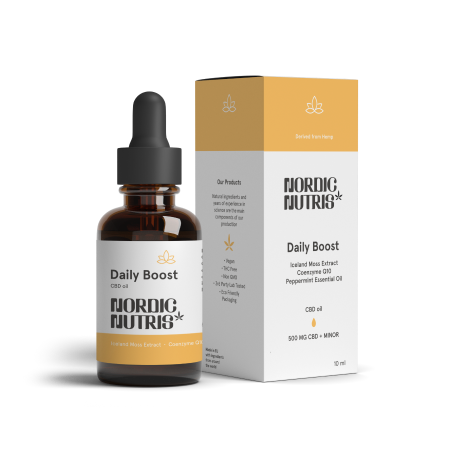
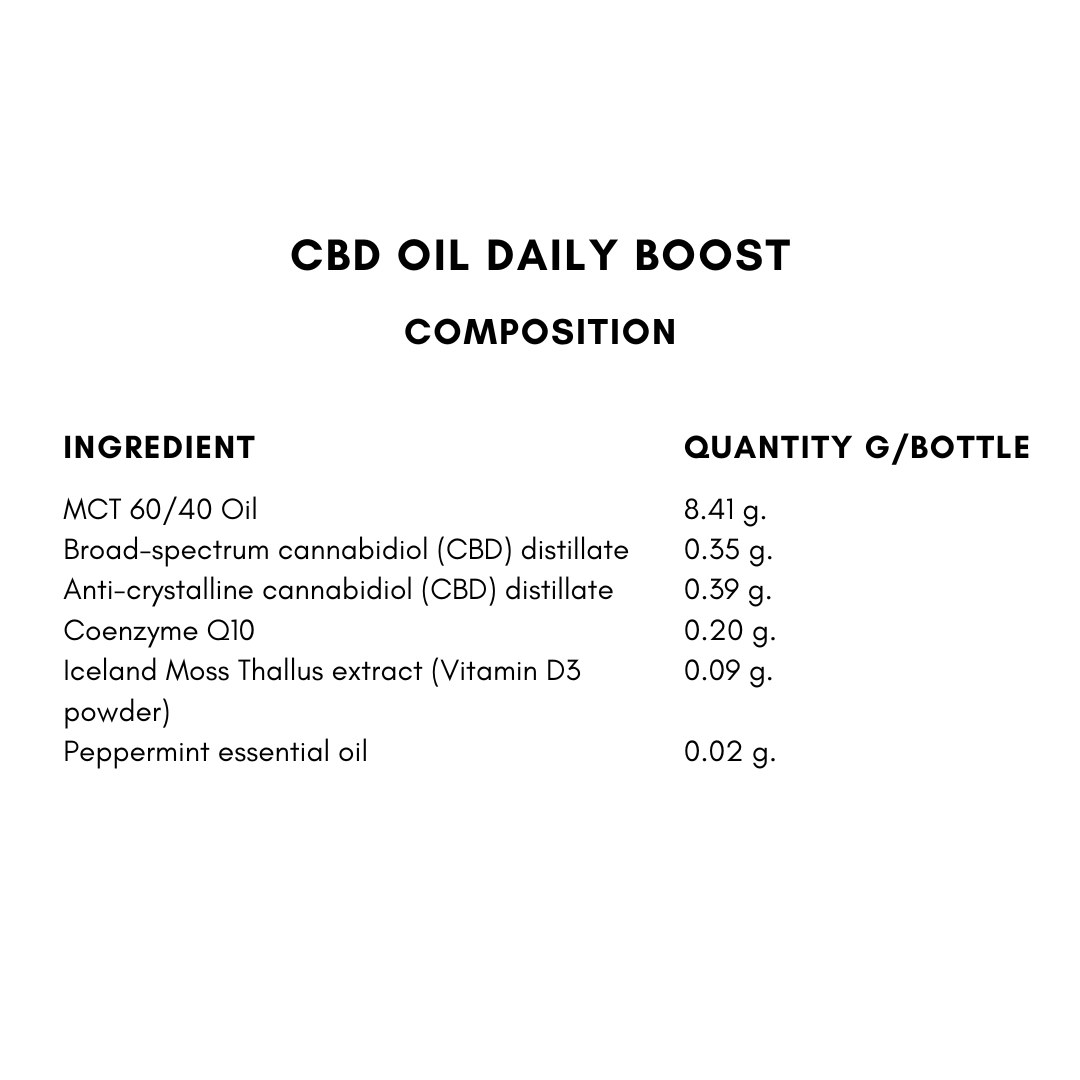
 Nemokamas pristatymas visiems didesniems nei 60 Eur užsakymams
Nemokamas pristatymas visiems didesniems nei 60 Eur užsakymams Saugus atsiskaitymas
Saugus atsiskaitymas  30 dienų pinigų grąžinimo garantija
30 dienų pinigų grąžinimo garantija Paprastas pristatymas
Paprastas pristatymas 
 Verified buyer
Verified buyer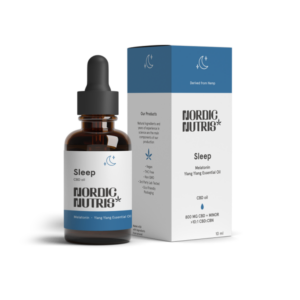
 Shop Now
Shop Now